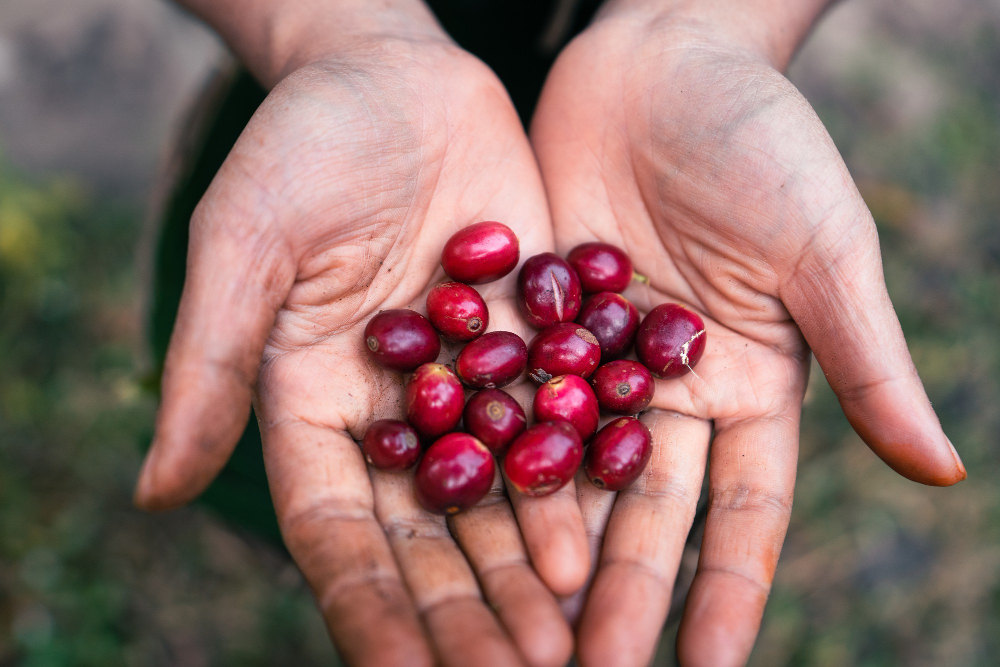Coffee farming is more than just the production of beans; it’s a story of culture, tradition, and a way of life connected to the land. However, Honduras and Papua New Guinea (PNG) are among some of the most established coffee-producing nations leading to unique flavour profiles whilst benefitting from diverse climates and terrains. But the growing demand for coffee, combined with the difficulties from climate change and socio-economic pressures, has forced these regions to adopt sustainable farming practices.
In this article, we will take a closer look at the coffee farmers in Honduras and Papua New Guinea, the challenges they face, the positive changes they implement on a daily basis and how their sustainability efforts are transforming their coffee economies for the better.
The Legacy of Coffee Farming in Honduras
Honduras, one of Central America’s largest coffee producers, is known for its high-quality beans featuring bright acidity, sugary flavors and fruity notes. Coffee farming is ingrained in the country’s economy and culture, with more than 100,000 families depending on it for their livelihoods.
Striking Aspects of Honduran Coffee
The Southern and Eastern regions of Honduras are characterized by high altitudes, rich fertile volcanic soils and a warm climate. Because of these factors, combined with careful growing techniques, the beans produced are suited for different favors. The country has six known coffee regions including Copan, Montecillos, and Agalta which have been known for their distinct tastes.
Coffee Growing Hurdles in Honduras
Although coffee in Honduras is a popular crop, the industry has many hurdles to clear.
Altering Climates: The changing weather and temperature are detrimental for the delicate conditions that specialty coffee farming requires.
Coffee Leaf Rust: This fungus has devastated output and left farmers in the search of resistant coffee strains.
Economic Stresses: High coffe prices on the global market and difficult access to international markets place pressure on smallholders.
Sustainability Efforts in Honduras
To deal with these, Honduras is working on building on these approaches and achieving sustainable agriculture:
Shade-Grown Coffee: This not only improves the taste of coffee beans but also helps in crop diversification and soil conservation as more farmers invest in coffee cultivation beneath tree cover.
Training Programs: Alignment with organizations such as the Honduran Coffee Institute (IHCAFE) has helped farmers better manage diseases, control soil and practice organic farming.
Fair Trade and Certifications: Farmers are getting certified as Fair Trade and Rainforest Alliance and other certifications to ensure that they employ fair practices during and after harvesting the crops while getting better payments.
Community-Based Initiatives: Cooperatives have become an integral part of coffee value chain as they help small farmers to aggregate and access capital and international markets more efficiently.
Papua New Guinea’s coffee: doorway to the stunning diversity inside PNG
Located in Oceania Papua New Guinea houses some of the most delicious coffee in the world. The farmers in Papua New Guinea focus on distinct kinds of coffee which have a floral, fruity as well as an earthy appeal, additionally the geography, cultural roots of the water and the farmers also shapes the coffee farming in the region.
The Impactful Nature of Papua New Guina Coffee
Exported coffee mostly comprises of arabic, This type of coffee is primarily grown in the misty environment of the Papua New Guinea, in the region where the height exceeds roughly 1500 meters over sea level. The volcanic Environment combined with the mist helps in growing organic coffee in Papua New Guinea.
Challenges in PNG’s Coffee Sector
Coffee producers in PNG have problems like those in Honduras, but with extra difficulties from the country’s isolation and complex socio-political issues:
Infrastructure Issues: Bad roads and few processing facilities hinder farmers’ ability to get their crops to markets.
Small-scale Farming: Coffee is mostly grown on small family-owned lands, which limits the benefits of larger operations.
Pests and Illnesses: The coffee berry borer and other diseases have caused major crop damage.
Sustainable Approaches in PNG
In spite of these difficulties, coffee growers in Papua New Guinea are adopting sustainable practices to protect the environment and enhance their livelihoods:
Organic Cultivation: Many farmers organically grow coffee without chemical fertilizers due to traditional ways and lack of access to synthetic options. This supports organic farming even if unintended.
Community Support: NGOs and cooperatives assist local communities by providing training on processing after harvest, ensuring quality, and developing marketing plans.
Agroforestry Practices: Combining coffee with local trees helps keep soil healthy, lowers deforestation, and benefits local wildlife.
Focus on Smallholders: Programs like the PNG Coffee Industry Corporation work to boost productivity and sustainability among smallholder farms, which are prevalent in the country’s coffee industry.
Shared Traits: Sustainable Farming Practices
Both Honduras and PNG prioritize sustainability, understanding that protecting their natural resources is crucial for coffee farming’s future. Some common sustainable methods include:
- Climate-Resilient Coffee Varieties
Farmers in both countries are switching to coffee types that can better handle climate change, pests, and diseases. These stronger varieties help keep production levels steady without lowering the quality of the coffee.
- Saving Water
Old methods of processing coffee use a lot of water, but many farms are now using systems that recycle water and cut down on how much they use during processing.
- Composting and Healthy Soil
Farmers are adding organic compost and natural fertilizers to the soil to make it richer, rely less on chemical products, and keep the land fertile for the future.
- Fair and Sustainable Certifications
Labels like Fair Trade, Organic, and Rainforest Alliance are important because they make sure coffee is grown in an eco-friendly way while also helping farmers earn better pay and reach more markets.
Economic and Environmental Impacts
Economic Benefits of Sustainable Practices
Using sustainable methods helps coffee farmers by making the beans better, allowing them to sell at higher prices, and building direct connections with buyers and roasters. In places like Honduras and Papua New Guinea (PNG), cooperatives and certifications help farmers avoid unstable market prices and earn more money.
Environmental Stewardship
Sustainable farming helps protect nature, fight deforestation, and take care of soil and water. In Honduras, shade-grown coffee farms create homes for animals, while in PNG, agroforestry helps save the area’s unique plants and wildlife.
The Importance of Global Help
International groups and coffee buyers are very important in helping farmers in Honduras and PNG grow coffee in a sustainable way:
- Direct Trade Agreements: When buyers work directly with farmers, they can pay them fairly and make sure the coffee is of good quality.
- Support and Training: Organizations like World Coffee Research and the Coffee Quality Institute give money and teach farmers better ways to grow coffee.
- Informing Customers: When people know to buy coffee that is made responsibly, it increases the demand for sustainable coffee. This encourages farmers to use better, eco-friendly methods.
Vision for the future
The journey towards sustainable coffee cultivation is underway in Honduras and Papua New Guinea. Farmers in both regions face complex challenges. But their resilience and commitment to sustainable practices gives hope for the future. By protecting the environment, improving living conditions and producing high quality coffee They not only ensure the survival of their coffee industry; But it also contributes to a more equitable and sustainable global coffee market.
As a consumer We can support this journey by choosing coffee that is ethically sourced and sustainably grown. Promote a positive impact on the agricultural community and the world. Embedded in every cup from Honduras or Papua New Guinea is a story of dedication, tradition and progress. It’s a testament to the power of sustainable practices.

